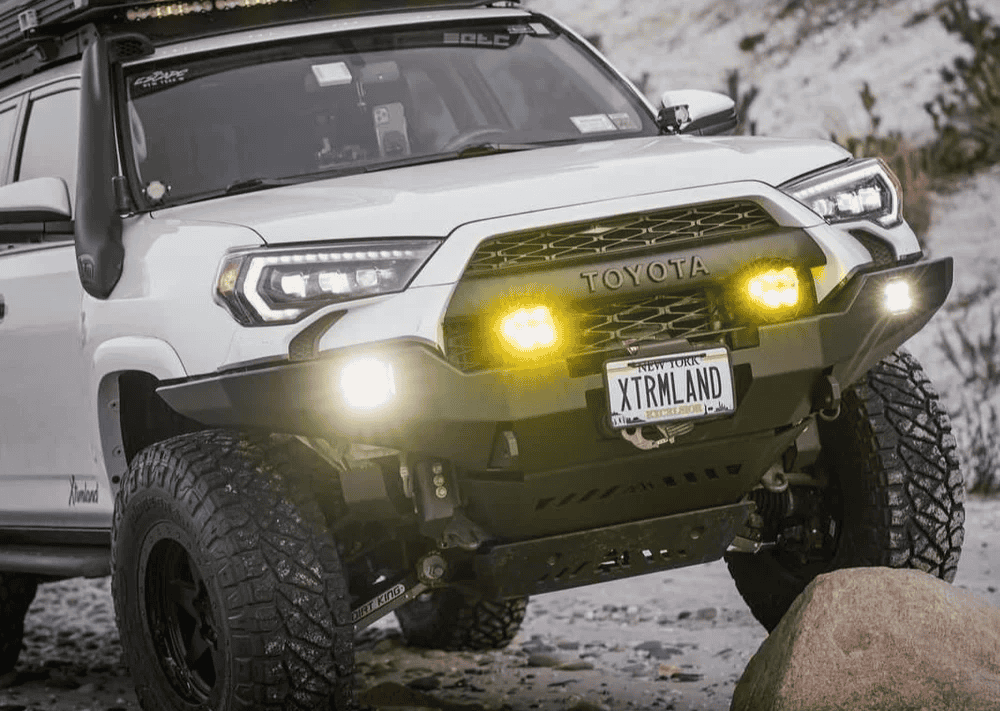Overland Vehicles

Ask three travelers to define overlanding and you will hear three flavors of the same idea. Overlanding is self reliant, long distance travel where your vehicle and camp setup carry you across remote terrain. It is not about conquering a single obstacle or peak. It is about movement, navigation, and living comfortably yet simply between points on the map.
If you are wondering what does overlanding mean in practical terms, think of it as slow travel with a capable rig, where the road surface shifts from pavement to gravel to forest two track without drama. It sits between a road trip and technical off roading. The daily rhythm centers on route finding, campsite selection, and managing supplies.
Overland off road 4x4 crossing a desert two track at sunrise, illustrating what overlanding means as self reliant travel beyond pavement
When people ask what is overlanding, the most useful answer emphasizes duration and self sufficiency. Trips often span days or weeks, sometimes crossing borders. The vehicle is home base, carrying shelter, water, food, recovery tools, and power. The driver and passengers are the real engines, using judgment to read terrain, weather, and time.
Overlanding traces to remote stock routes and mail paths across Australia and Africa, where crossing big distances demanded planning and grit. Those early runs were about connecting far flung points with limited support. Today’s overland off road travel borrows the same mindset, updated with modern mapping and gear.
A summit is optional. A good track and a quiet camp are enough. The reward is the string of small decisions that lead you there, not a single trophy location.
Overland routes may include rough sections, but the intent is steady forward progress. Reliability, payload, fuel range, and comfort matter more than maximum articulation.
Maps, satellite imagery, and local knowledge turn into daily route choices. You start learning terrain types the way sailors read wind and swell.
There is no single recipe, only principles. The right vehicle is the one that safely carries you and your kit for the distance you plan to travel. Focus on reliability first, then add systems that improve range and habitability.
Comfort keeps you out longer. A simple galley, a proper sleep system, and dust proof storage reduce fatigue. Power systems sized for a fridge, lights, comms, and device charging simplify camp life without turning it into a generator exercise.
Carry recovery points, kinetic rope, a shovel, traction boards, and a jack you know how to use. Air down to protect tires and terrain, air up for long pavement stretches. First aid, water treatment, and redundant navigation sit as high on the list as any accessory.
Good trips start on the table at home. Sketch a route with conservative daily distances and at least one alternate. Vet water sources and fuel legs. Watch seasonal closures and burn areas. A flexible plan beats a rigid itinerary.
Time on the trail teaches line choice, soil types, and how weather reshapes tracks. Mountain rain can turn clay into grease within minutes. Desert storms can stack sand across normally firm sections. Adjust tire pressure, momentum, and route choices to conditions, not ego.
Stay on established routes to protect crusts and vegetation. Pack out waste. Keep noise low in camp. Respect private gates and follow posted rules. The more we treat access like a privilege, the longer it lasts.
When you are ready to translate plans into a purpose built rig, match your setup to your travel style. If your routes favor washboard and long gravel, comfort and suspension tuning carry more weight than extreme clearance. If you chase alpine passes, gearing, cooling, and brake performance deserve attention. For a deeper look at platforms and approaches, explore Overland rigs built for travel.
Outfitting can be incremental or comprehensive, but every choice should earn its place. Thoughtful layouts, secure storage, and dependable power systems set you up for weeks on the road. To see how a tailored approach comes together in practice, review our Custom overland upfit options. Wondering what working with a dedicated shop is like from kickoff to handoff? Start with Why choose OZK Customs.
If the idea of tracing thin lines on the map and camping where the stars outnumber taillights resonates, it is time to plan a build that supports it. Share your routes, passenger count, and must haves, and we will design a rig that carries you farther with less fuss. From suspension tuning to power and storage, our team outfits travelers for real world overland off road miles. Reach out, and let us help you turn a sketch on paper into a reliable companion on the trail.
Ready to build an overland ready van or truck that fits your routes, cargo, and comfort goals? Tell us how you travel and we will map a purpose built upfit around you. Share your plans in the form and our team will reply with a tailored concept, timeline, and budget.
ADDRESS:
6159 E Huntsville Rd, Fayetteville, AR 72701
PHONE:
(479) 326-9200
EMAIL:
info@ozkvans.com